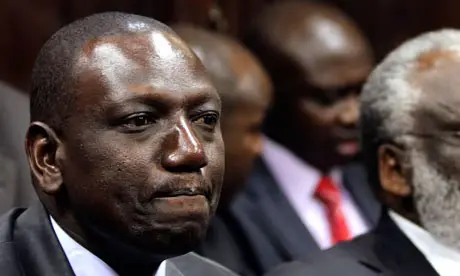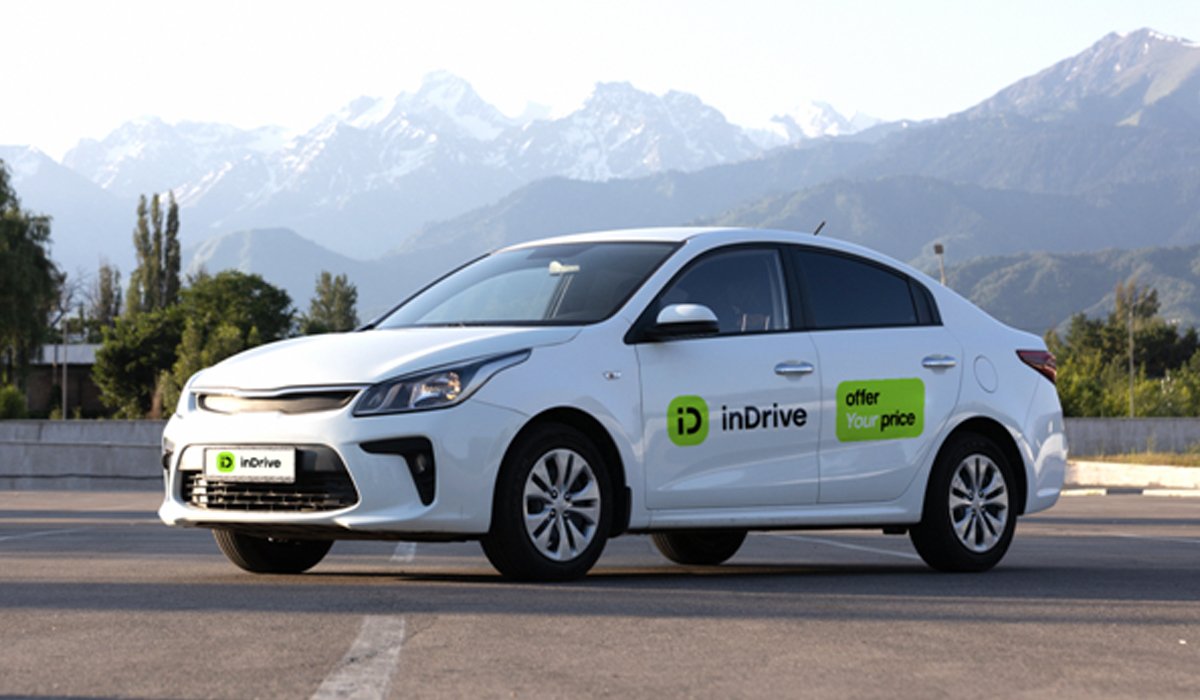

Good morning ☀️
Nigeria now has two tech-focused ministers: Bosun Tijani, the minister for communications and digital economy, and Uche Nnaji, the minister of innovation, science and technology.
While most of Nigeria’s tech ecosystem knows about Tijani and his work at accelerator CcHub, not many know about Nnaji whose ministry is focused on implementing policies created by Tijani’s.
Kenya’s Hustler Fund racks up 29% of bad loans

A lot of hustlers are not paying back their loans on time.
The Kenyan government launched the KES50 billion ($346 million) Hustler Fund in November 2022 to give loans to small Kenyan businesses that don’t have access to credit through traditional means. So far, KES33 billion ($228 million) has been lent out, and there is an outstanding loan of KES10.2 billion ($70.5 million).
An outstanding loan? Yes, and according to the repayment schedule, 29% of that, about KES3 billion ($20.7 million) are being considered non-performing loans. Even though these loans come with a friendlier interest rate (8%) compared to traditional loans from banks, the Hustler Fund is racking up more non-performing loans (NPL) than those fancy regular banks, cooperatives (SACCOS), and even microfinance banks.
To put it in perspective, those typical banks, microfinance banks, and cooperatives like SACCOS have non-performing loans (NPL) rates of 14.5%, 23%, and 8.86%, respectively, while the Hustler Fund’s NPL rate is flying higher at 29%.
How will the government get its money back? The Kenyan government has linked the Hustler Fund to existing funds that also support the economically disadvantaged so that defaulters will not get access to more funds until they improve their credit scores. It also introduced credit scoring in February to reduce the rate at which people default on loans from the Hustler Fund. The bad loans will not go away completely, as is typical of any credit business, however, the quality of the Hustler Fund loan book has been improving.
Get a working card from Moniepoint

With the Moniepoint personal banking app, you get reliable payments every time and a card that always works. Enjoy seamless payments powered by the infrastructure that 1.5 million businesses trust. Download the app.
Zimbabwe’s internet slows ahead of elections

Zimbabwe’s online highways are currently stuck in traffic.
Zimbabweans are suffering sluggish internet just ahead of the country’s national elections on Wednesday. This online traffic is affecting the customers of the top internet players like NetOne, Econet, TelOne, and Liquid.
How bad is it? Per Netblocks, users have been experiencing downtimes on platforms like Instagram, Twitter, YouTube and Facebook. Additionally, some Econet users say that they are unable to access Whatsapp.
Sounds familiar? The Zimbabwean government has a history of limiting internet access during important national events. It throttled the internet in 2020 ahead of planned protests and in 2019 during national demonstrations against increasing fuel prices.
More recently, in February last year, internet speeds significantly slowed down during a national demonstration by the Citizens Coalition For Change, one of the leading opposition parties in the country. Many people were unable to live stream the demonstrations. In March, something similar happened during more opposition demonstrations. Netblocks confirmed that the disruptions were not due to congestion as claimed by government sources.
Moniepoint gets a nod to acquire Kopo Kopo

Moniepoint is expanding to East Africa.
Nigerian fintech platform, Moniepoint, has been granted approval by Kenya’s regulatory body, the Competition Authority of Kenya (CAK), to acquire payments firm Kopo Kopo. The proposed transaction will see Moniepoint Inc. acquire all shares of Kopo Kopo.
How much? While the transaction value for this acquisition is yet to be disclosed, the CAK oversees competition-related matters for transactions exceeding Ksh1 billion ($7 million), which means that the acquisition was the same or exceeded this amount.
Unconditional approval: The Kenyan Authority granted unconditional approval to Moniepoint’s acquisition based on two key considerations namely. First, the authority’s assessment suggests that the transaction is unlikely to negatively impact competition in the market for digital credit. Second, the transaction will not elicit negative public interest concerns.
In an email to TechCabal, Moniepoint said, “We have been vocal about our interest in Kenya as part of our mission to provide financial happiness for people across Africa. This regulatory approval is a milestone in that process and one that we are delighted about.”
Kopo Kopo? Before its acquisition by Moniepoint, Kopo Kopo was valued at about $10 million as of 2015 when it raised $2.1 million in Series B funding in 2015. The credit and payment startup offers similar tools to businesses just like Moniepoint but in Kenya. Kopo Kopo’s partnership with M-PESA allowed for mass adoption of digital payments by small businesses in Kenya.
inDrive launches in Lesotho

inDrive is making a turn to Lesotho.
This week, the ride-hailing platform has announced its expansion to Lesotho. This is part of inDrive’s expansion plan into southern Africa. inDrive will charge drivers zero commission in the first six months of its operation in Lesotho, allowing them to keep all of their earnings.
Unlike other ride-hailing platforms which determine fare prices by a set algorithm, inDrive allows drivers and passengers to set their prices. Passengers can suggest a fare, while drivers may accept, decline, or make a counteroffer without any penalties. The decision on whether to proceed with a ride can be made by considering the fare amount, car type, estimated arrival time, and driver ratings. Drivers can select profitable and convenient requests.
According to Vincent Lilani, the company’s business development representative, “We believe that this method offers a sound solution to many current challenges in the Southern African ride-hailing market.”
Zoom Out: inDrive’s move to Lesotho allows it to be the choice ride-hailing platform for Mosothos as Uber and Bolt are currently unavailable. The move also positions inDrive as a viable alternative to Uber and Bolt in the southern African region.
The World Wide Web3
Source:

|
Coin Name |
Current Value |
Day |
Month |
|---|---|---|---|
| $25,999 |
+ 0.07% |
– 12.57% |
|
| $1,637 |
– 1.43% |
– 12.52% |
|
|
$4.09 |
– 13.96% |
+ 126.80% |
|
| $0.52 |
– 0.13% |
– 28.57% |
* Data as of 05:45 AM WAT, August 23, 2023.
NTICE Expo 2023
The Nigeria Office for Developing the Indigenous Telecom Sector (NODITS) is hosting the second edition of the Nigerian Telecommunications Indigenous Content Expo (NTICE).
The 2nd edition, NTICE 2023, is themed “Harnessing Indigenous Content for Economic Growth”, and is set for August 22 to 24 at Landmark Centre, Lagos, Nigeria. The event will emphasise manufacturing, service, people, and R&D in line with diversifying the economy.
- Visa is open to applications for its Africa Fintech Accelerator Program. Startups up to the Series A stage are encouraged to apply for a chance to gain unparalleled expertise, valuable industry connections, cutting-edge technology, and potential investment funding. Apply by August 25.
- If you are an aspiring economist entering your first year of undergraduate studies in the 2024 academic year, the South African Reserve Bank’s (SARB) Economic Research Department in collaboration with the SARB Academy, invites you to apply for competitive SARB bursaries in the field of economics, economics and econometrics, economics and mathematical statistics and economic science. Apply by September 30.
- Applications are open for the Cambridge Africa ALBORADA Research Fund 2023 for sub-Saharan African Researchers ($20,000 in Grants). The Cambridge Africa ALBORADA Research Fund competitively awards grants between £1,000 and £20,000 for research costs, research-related travel between Cambridge and Africa, and conducting research training activities in Africa. Apply by September 4.
- The SaaS Accelerator Programme: Africa 2023 has opened applications for its accelerator programme to enable early startups in Africa to receive funding. Selected startups will receive up to $70,000 in funding. Apply by September 7.
What else is happening in tech?
Want more of TechCabal? Sign up for our insightful newsletters on the business and economy of tech in Africa.
- The Next Wave: futuristic analysis of the business of tech in Africa.
- Entering Tech: tech career insights and opportunities in your inbox every Wednesday at 3 PM WAT.
- In a Giffy: business decisions powered by data-driven insights and analysis you can trust.
P:S If you’re often missing TC Daily in your inbox, check your Promotions folder and move any edition of TC Daily from “Promotions” to your “Main” or “Primary” folder and TC Daily will always come to you.























